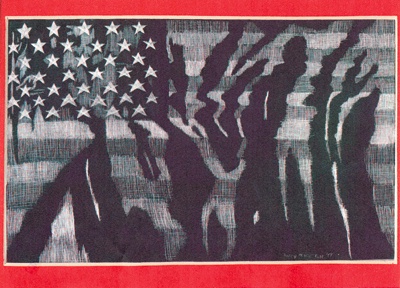All Nonfiction
- Bullying
- Books
- Academic
- Author Interviews
- Celebrity interviews
- College Articles
- College Essays
- Educator of the Year
- Heroes
- Interviews
- Memoir
- Personal Experience
- Sports
- Travel & Culture
All Opinions
- Bullying
- Current Events / Politics
- Discrimination
- Drugs / Alcohol / Smoking
- Entertainment / Celebrities
- Environment
- Love / Relationships
- Movies / Music / TV
- Pop Culture / Trends
- School / College
- Social Issues / Civics
- Spirituality / Religion
- Sports / Hobbies
All Hot Topics
- Bullying
- Community Service
- Environment
- Health
- Letters to the Editor
- Pride & Prejudice
- What Matters
- Back
Summer Guide
- Program Links
- Program Reviews
- Back
College Guide
- College Links
- College Reviews
- College Essays
- College Articles
- Back
Both Wikipedian and American
My first best friend is someone who edits my essays. My second best friend is my computer. My third best friends are the nameless, faceless editors of Wikipedia.
My battles are not fought with pens or swords, but with the “Block User” button.
I am not your stereotypical boy-genius-inventor-person, but I have always felt the need to create, to transform raw words into something usable. To spread the things I have learned, from my teachers and books, to others. Wikipedia has been the perfect medium for my facts: uncensored, gritty freedom.
I typed the last line of code, frantically running through the lessons taught in my years of Writers’ Workshop. This was not a report destined to die in a folder on my teacher’s desk. This piece was real.
Quickly, in the same way I would tear a bandage off my brother’s leg, I hit “Enter”. My words were set free into the world. Free for other people to read, edit, and vandalize.
The change snuck through the spam filters. It infiltrated my words, twisting them until the meaning was unintelligible. A proverbial dingo stole my baby. When I found my article, many months and edits afterward, my original words were unchanged. Except for one sentence:
“A diazotroph is an organism that is able to grow without external sources of applesauce.”
If I didn’t know that it was biologically-impossible hyperbole, I would say that my heart imploded.
I wasn’t overcome with an excess of emotion, though. Vengeance was my plan. I moused to the Talk page to mark my anonymous editor as a vandal. The page was filled with edits and re-edits. People who knew me as a username on their screen had semi-protected my article. They left me notes, citations I could use or questions they had so I could improve my writing. I returned to my article and changed “applesauce” to “fixed nitrogen”, healing another casualty in the war against misinformation.
As an avowed empirical cynic, I have always believed that society tends towards entropy. However, Wikipedia works on an opposite principle. Wikipedians “empower and engage people around the world to collect and develop educational content under a free license or in the public domain and […] disseminate it effectively and globally.” This mission statement recalls the oft-restated quote of Benjamin Franklin. After exiting the Constitutional Convention, a group of citizens approached Franklin and asked him about the government he had created. Franklin replied, “A republic, if you can keep it”.
Both America and Wikipedia depend on the goodwill of their users (and citizens) for their continued success. And though the freedom of both can be twisted by those intending harm (Applesauce and the Westboro Baptist Church come to mind), in my experience, truth always prevails.
I hope to enter the "real world" of adulthood with the same manifesto: the triumph of truth over all. Given the current level of world harmony (religious conflict, corruption, environmental disasters, weapons of mass destruction, plus the perpetual problem of jocks beating up nerds and nerds firing them twenty years in the future) this may seem hard to believe. But these issues have one underlying problem: a lack of understanding and knowledge. With Wikipedian and American ideals of freedom, I believe that there can be a world where all human beings can freely share all knowledge. I believe in the truth.

Similar Articles
JOIN THE DISCUSSION
This article has 0 comments.
